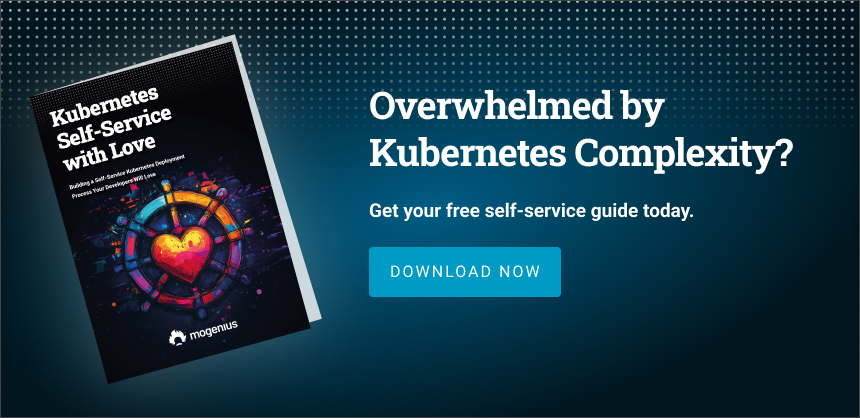
Simplifying Kubernetes Network Policy Management with mogenius
.avif)
As Kubernetes continues to be the backbone of many modern cloud-native architectures, managing its network policies efficiently and securely has never been more crucial. Today, we're excited to introduce the new Network Policy Manager from mogenius, designed to streamline network policy management while significantly enhancing security and operational efficiency.
Why Kubernetes Network Policies Matter
Kubernetes network policies play a crucial role in defining how pods within a cluster communicate with each other and with external systems. They function much like traditional firewall rules, allowing administrators to specify which pods can communicate over specified ports and protocols. Without effective network policies, a Kubernetes cluster is vulnerable to unintended data exposure and breaches, as unrestricted communication between pods can be a security risk.
Network policies are essential for:
- Restricting Access: Controlling communication paths reduces the attack surface within a cluster.
- Segmentation: Segregating environments or workloads to maintain compliance with regulations.
- Preventing Lateral Movement: Stopping malicious entities from moving laterally within the cluster if they penetrate an initial pod.
Re-thinking Kubernetes Networking
Traditional Kubernetes network policy management can be complex and prone to errors. Different policies can contradict each other, leading to unforeseen conflicts that compromise security. The new Network Policy Manager from mogenius simplifies this process by adopting the "deny-all-allow-selected" principle, echoing the proven simplicity and reliability of firewall management tools like ipTables.
Key Benefits of the mogenius Network Policy Manager
- Streamlined Management for DevOps Teams: Providing a unified interface with built-in best practices and templates, the complexity of managing network policies is significantly reduced for DevOps, administrators, and SREs.
- Enhanced Security: Ensures that network configurations are always up-to-date and enforced correctly, mitigating risks from misconfigured policies.
- Visual Dashboard: Provides a clear, intuitive overview of all network policies, making monitoring and adjustments easier than ever.
Innovative Features
The mogenius Network Policy Manager brings several groundbreaking features:
- Label-Based Control: Moves away from individual policy definitions on cluster-, namespace-, and controller-level, by using labels and templates.
- Rapid Deployment: With an operator-based setup, installations are quick, allowing users to consolidate all existing policies into a centralized, manageable overview.
- Deny-all approach: Applying default namespace-wide policies to drop all incoming traffic, allowing granular control over allowed traffic, also improving governance
Managing Kubernetes network policies has always been a challenge, laden with complexity and risk. The new Network Policy Manager not only simplifies this process but also provides robust security enhancements through automation and real-time insights. For teams looking to save time while boosting security, this is truly a game-changer.
Explore how the mogenius Network Policy Manager can revolutionize your network policy management. Equip your Kubernetes environments with simplified, robust security and unleash the full potential of your cloud-native applications.
Here’s how to get started
Network Policy management with mogenius can be used out of the box with any Kubernetes cluster that has a CNI configured. Once you’re logged in to mogenius (don’t have an account yet? Sign up here), it just takes three simple steps:
- Connect your Kubernetes cluster by installing the operator (check out our quickstart guide).
- Enable network policy management on a namespace.
- Deploy a network policy to a controller.
Enabling Network Policy Management
Navigate to your cluster in mogenius and open the Network Policies tab. You’ll see a list of all namespaces in your cluster. If network policies are present in a namespace, they’ll be listed under Unmanaged policies .
To enable network policy management, click the button next to a namespace of your choice. When you confirm, three things will happen automatically:
- All previously created network policies in this namespace will be deleted to ensure consistency and predictable results for policies created using mogenius. Be sure to back up your policies before proceeding.
- A deny-all policy will be deployed, blocking any ingress traffic to services in this namespace.
- A policy allowing communication between pods within the namespace will be applied.
Next, you can deploy granular network policies for each service. This setup ensures that, by default, no traffic is allowed to your services except through the network policies that you explicitly define. This provides the highest level of control and transparency over the policies applied to your services.
Deploying and managing network policy templates
Once network policies are enabled, the controllers (e.g., Deployments, StatefulSets, or ReplicaSets) within the namespace will be visible. To deploy a network policy for a controller:
- Click Add next to the desired controller.
- Select policies from the library of available network policies.
- Confirm your selection.
The selected policies will be deployed immediately and associated with the controller by setting a label.
The library of network policies is managed by a ConfigMap that mogenius creates on your Kubernetes cluster. To add, edit, or remove policies in that ConfigMap, click the Manage Policies button at the top of the Network Policies page.
Network Policies For Developers
With mogenius, DevOps teams can empower developers to manage network policies for their services independently, without requiring support or risking misconfigurations that might affect other services or namespaces. This is facilitated through mogenius workspaces (or projects), where developers can work safely and abstractly.
For developers:
- Each service has a Network Policies setting.
- By default, this feature is disabled.
- Only when an admin enables network policy management for a namespace can developers access the feature.
When developers add a policy to their service, they can choose from the library of network policies configured in the ConfigMap. This approach allows admins to maintain control over the set of policies and the scope of namespaces where they can be applied. Simultaneously, it enables developers to configure network policies for their services without creating tickets or waiting for admin support.
About mogenius
At mogenius, we empower development teams by optimizing productivity in Kubernetes environments. Our solutions streamline application monitoring, delivery, and operations, transforming how teams interact with Kubernetes. By simplifying complex processes, we enable organizations to accelerate development, enhance operational efficiency, and adopt Kubernetes safely and effectively.
Contact us if you’re interested in a walkthrough of the mogenius network policy manager.

FAQ
Interesting Reads
The latest on DevOps and Platform
Engineering trends
Subscribe to our newsletter and stay on top of the latest developments



